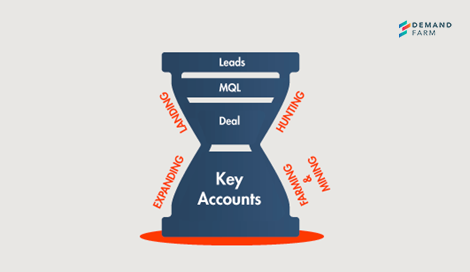Every account or customer is like a fingerprint – unique and having a distinct persona and behavior. Developing an account-centric culture is among the top mandates for every company, but not every company has an effective way to track its progress. Initially, companies relied on CRM for opportunity management, but still lacked in processes to handle large account management. Account Planning Tools were created to help firms provide the required intelligence into their key accounts. As the environment has changed, account planning tools also have had to evolve to handle new opportunities and help enterprises resolve their existing challenges.
Enterprises must carefully create shorter, bite-sized data and content in appropriate formats for 30/45/60-minute virtual meetings to ensure comprehension and respect time commitments. It is also important to prioritize information that is critical to educate customers and provide buying help and requires stakeholder inputs and/or approval to move conversations forward.
Learn More: The Future of Key Account Management Report – A Global CSO study by DemandFarm
Leveraging Analytics for Key Account Planning
Analytics is another powerful arsenal in account planning tools. Analytics can play a precise role in account centricity. Armed with detailed insights, you could prepare detailed proposals/quotes depending on each key account requirement. Enterprises can review target achievements and create reports which facilitate the creation of apprised account management decision-making and strategy formulation. This will help to prepare pricing documentation for the business’s products/services prior to sending financial proposals to key accounts. Analytics can also help in identifying the future trends and opportunities in the industry as enterprises can not only understand what their customers are trying to tell them but also their future plans and concerns. Most importantly, analytics can help in throwing insights on the non-captured value of a customer such as referrals and learning and innovation benefits, which may add to the economic value derived from Customer Profitability Analysis and Customer Lifetime Value.
Watch Now: The Shifting Landscape of Strategic Account Management / Key Account Management (featuring SAMA)
Leveraging AI for Key Account Planning
AI is definitely going to impact almost every field, and it’s only a matter of time before it starts impacting the account planning process too. Currently, most of the key processes in the account planning or management space involve a level of cognitive ability and thinking to create a unique value proposition for specific clients. Though these are early days, AI can and will probably evolve to a stage where AI tools embedded within the account planning tools are able to guide which parts of a client’s engagement can grow further in engagement and which are the ones at risk.
Watch Now: The Changing Role of Technology in Key Account Management (featuring Forrester)
By 2025, Gartner expects 80% of B2B sales interactions between buyers and suppliers to happen in digital channels. The future of account planning will hence see a huge transformation in strategy, processes, and resource allocation that moves the process from being seller-centric to buyer-centric and from analog to hyper-automated, digital-first engagement with customers. Account Planning Tools will also have features where it will be possible for enterprises to collaborate in real-time with their clients. It will increasingly be common to co-create solutions by inviting clients to collaborate using whiteboarding tools. Increasingly, decision-making will be based on data, analytics, and AI, not on intuition and experience. Organizations must be ready to engage the “everywhere customer”. A shift to buyer-oriented, not product-oriented integrated commercial channels will be hence critical to meet customers’ changing expectations and preferences for digital and self-service channels.

